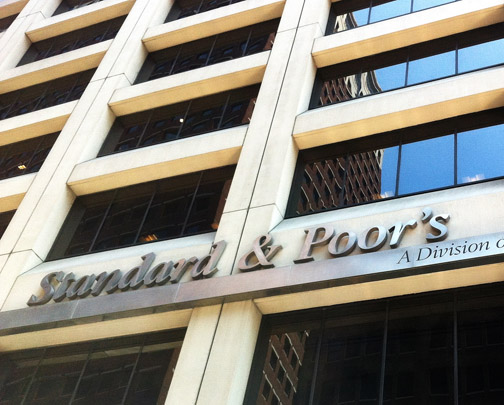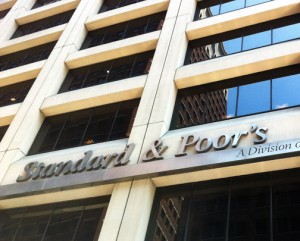Economist: Puerto Rico has a lot to learn from NYC crisis


Puerto Rico’s credit rating was lowered to “junk” earlier this year by Standard & Poor’s, Moody’s and Fitch. (Credit: © Mauricio Pascual)
Puerto Rico is in the throes of one of the most serious economic depressions in the last 40 years of its history as a Commonwealth. However, it is not alone in its experience, which could be compared to the fiscal crisis New York City faced in 1975, when it was on on the verge of defaulting on its obligations.
In a recent publication, economist firm H. Calero Consulting Group explained that Puerto Rico could take a page from NYC’s strategy to pull out of its financial spiral, which called for the state’s leaders to come together to “put the house in order.” That process took 16 years to see through, the firm explained.
Puerto Rico has experienced three major economic crises — in the 70s, in the early 80s and now — all of which have had a similar solution: imposing more or new taxes, the firm noted in its research.
And while Puerto Rico was facing its first major fiscal emergency four decades ago, so was New York City, which almost defaulted on its public debt in 1975 and had to implement tough measures, including using union retirement funds to back loans to the city and halt bankruptcy proceedings.
This happened only after all parties came to a last-minute agreement to “share the pain and avoid the uncertainty that bankruptcy or receivership promised.” The city also accepted the federal government’s help.
“World leaders feared the repercussions of a New York bankruptcy. And the city might be denied access to credit for decades. Yet, it was precisely the threat of a bankruptcy that got everybody to things that in the beginning many swore they would not do,” H. Calero Consulting said in its latest edition of “Pulse,” its monthly publication.
At the time, New York City had amassed $14 billion in debt; Puerto Rico’s tally currently stands at $70 billion, with a “junk” credit status imposed in February by the three major stateside ratings agencies. The main drivers for this decision were lack of economic growth, huge government deficits, and the Government Development Bank’s liquidity challenges.
In its assessment, the economist firm concluded that Puerto Rico’s leaders need to come together to come up with viable, long-term solutions including drafting a five-year financial plan with bondholders agreeing to lengthen maturities at lower rates, ideally guaranteed by the U.S Department of the Treasury.













I agree with Heidie Calero. In fact, four years ago in a discussion on fiscal policy at the Instituto de Política Pública I recommended that Puerto Rico should set up something similar to NY’s Financial Emergency Control Board. The Board, chaired by well known investment banker Felix Rohatyn, basically ran NY’s finances for ten years until disbanded in 1985/86. In January of this year at the Center for Strategic and International Studies (CSIS) I brought up the idea, but with a twist, assigning to it the responsibility for a long term economic development plan. Someone in the audience indicated that this would be placing Puerto Rico under a trustee. The answer, of course, is yes and the intention is precisely to place government finances in the hands of experts. JJ Villamil
Agree with comment below. On thing though…and especially in PR, the selling of an idea is perhaps even more important than the idea itself. Unless you sell it, and sell it well, there’s simply zero chance of it coming to life. There are toooooo many with self interest that are ready to squander reform and change in this society.
Until we stop spending money we don’t have on stuff we don’t need, and start maintaining and using what we have, the issues will never resolve. Our fiscal issues are a cultural issue. Look at Centro Médico. People in long filas outside in sun and rain waiting to get into the emergency room, inside doctors and nurses having to bring their own robes and gloves – but we’re building a shiny new $230 million cancer facility next door! What? What is wrong with their almost-new cancer hospital they have now? It is more important to be seen “doing something” than it is to be actually doing anything. And we take it. It is a cultural problem.